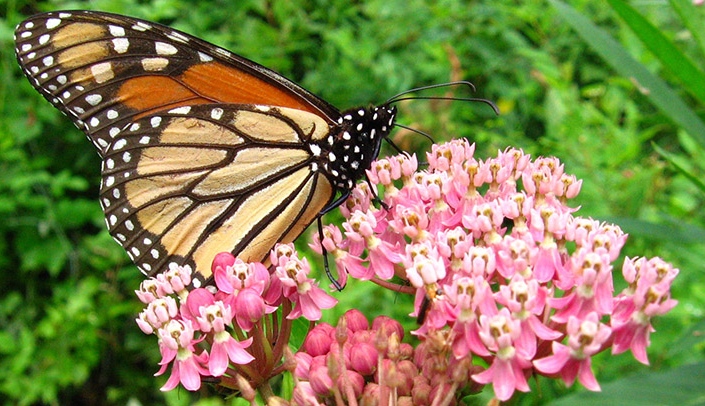Last week was Pollinator Week. But why should you care?
In short, humans rely on many insects, arachnids, birds and bats to survive, and the work they do can make us healthier. We like to think of pollinators as bees and butterflies, because we generally like them, but often it’s our instinct to swat, spray, kill and otherwise discourage other pollinators from visiting our yards.
Did you know that at least one out of every three bites of food you take are possible because of pollinators? Eating is obviously essential to our survival, and the work these pollinators perform adds between $235 to $577 billion worth of global food supply. Pollinators often go unnoticed, but they are critical to non-human species survival, biodiversity and this has a $50 billion value to U.S. tourism and recreation.
Insects help humans survive by cleaning up. They eat plant matter, animals and other insects we consider pests (making them worth $4.5 billion in pest control), already dead animals and even dung. All of this helps to reduce the waste we deal with, disease, and can even prevent forest fires.
Entomoptherapy is the use of insect-derived products in medicine — everything from the use of honey to the treatment for inflammatory diseases (like arthritis, fibromyalgia or osteoarthritis) using bee venom, known as apitherapy.
Pollinator habitats are being reduced, and disease, parasites, climate change and contaminants/chemicals are reducing pollinators. Insects have been dying off at a rapid rate, with studies showing 41% of species having steep declines in the last decade and 40% of insects species threatened with extinction. If these declines continue, it could lead to a “total collapse of nature” and threaten the survival of humankind.
You can help by creating a habitat in your yard. Plant clumps of native plants that flower at different times of the season and are correctly sited to the soil and sun. Don’t use pesticides or chemicals to control pests — create a healthy ecosystem so they take care of themselves. Don’t forget, insects and all pollinators need help at all stages of their life: some need to eat the plants (monarch caterpillars and milkweed), not just the flowers; some need plants/trees for habitat; and they need places to survive the winter. Practice conservation for all pollinators, and support farmers who use less chemicals and provide pasture habitat. Together we can save pollinators — and ourselves.
